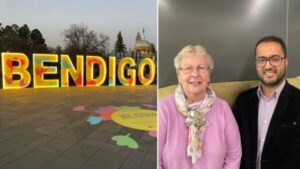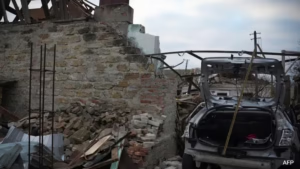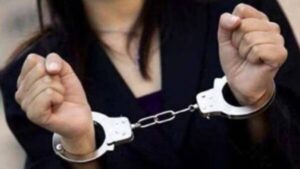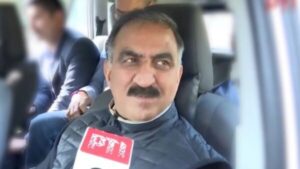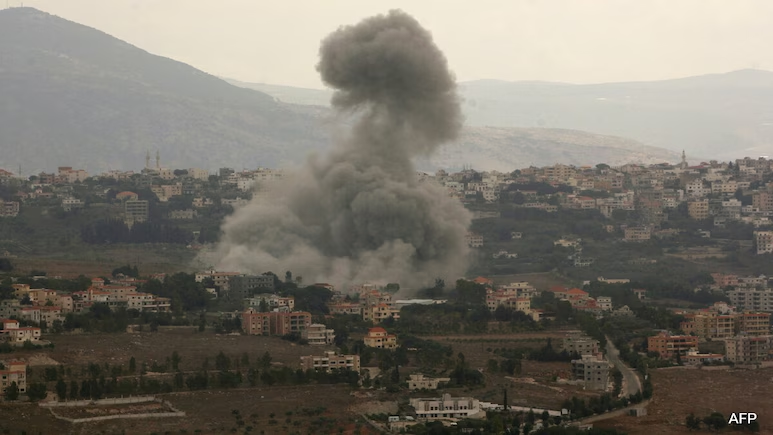
Lebanon said that "children, women and paramedics" were among the casualties.
Beirut, Lebanon: Israeli air strikes on Hezbollah strongholds in Lebanon on Monday killed 182 people, according to Lebanon’s health ministry, in the deadliest cross-border violence since the war broke out in Gaza on October 7.
The war began when the Palestinian group Hamas launched its worst ever attack on Israel, with Hezbollah and other Iran-backed groups around the region joining in the violence.
On Monday, Israel said it struck more than 300 Hezbollah targets with dozens of strikes, while Hezbollah said it struck three targets in northern Israel.
The health ministry said 182 people had been killed and 727 others injured, including children, women and health workers, in attacks by Israeli enemies on southern towns and villages “since this morning”.
World powers have urged Israel and Hezbollah to step back from the brink of war, with the epicentre of violence in recent days shifting rapidly from Israel’s southern front with Gaza to the northern border with Lebanon.
“We sleep and wake up with bombings… this has become our life,” said Wafaa Ismail, a 60-year-old housewife from the southern Lebanese village of Zawtar.
More to come
Israeli military spokesman Rear Admiral Daniel Hagri told Lebanese people to avoid potential targets linked to Hezbollah because the attacks would “continue in the near future”.
Hagri said the Israeli army would “carry out (more) extensive and precise strikes against terror targets that are widely present in Lebanon”.
He told civilians to “immediately move away from danger for their own safety”.
According to Bilal Kachmar, an official in Tyre, hundreds of people fled their homes because of the attacks.
He said “hundreds of displaced people” were sheltering in a school in the southern city, while many others were “camping in the streets”.
AFP reporters saw queues of cars leaving the nearby city of Sidon.
The Israeli army also warned people living in the Bekaa Valley in eastern Lebanon to flee their homes, as it announced it was “expanding” the scope of its strikes.
Explosions sent flames and smoke billowing into the sky around the ancient city of Baalbek in eastern Lebanon.
In divided Lebanon, large parts of the country’s south and east, as well as the southern suburbs of the capital city Beirut, are seen as Hezbollah’s strongholds, where the group has historically exerted influence and built up services for its Shi’ite Muslim support base.
The education minister said schools in the targeted areas would be closed for two days.
The official national news agency said Lebanese people had received phone messages from Israel telling them to “evacuate quickly.”
Hezbollah, a powerful political and military force in Lebanon, says it is acting in support of its Palestinian ally Hamas in its almost daily battles with Israeli troops along the Lebanese border, which is also backed by Iran.
Israel changing ‘security balance’
Prime Minister Benjamin Netanyahu said on Monday that Israel was not waiting for threats to emerge, but was preventing them in advance and working to change the “security balance” in the north.
Hezbollah’s deputy chief, Naim Qassem, said the group was in “a new phase, namely an open accounting” with Israel, and was prepared for “all military possibilities.”
He spoke after Hezbollah rocket attacks on northern Israel caused damage in the area of Haifa, a major city on Israel’s northern coast.
On Sunday morning, hundreds of thousands of people in northern Israel fled to their bomb shelters as Hezbollah fired a barrage of rockets across the border.
The attack followed an Israeli airstrike on Hezbollah’s southern Beirut stronghold on Friday that killed its elite Radwan Force commander Ibrahim Aqeel as well as other commanders and civilians.
Last Tuesday and Wednesday, coordinated communications equipment explosions killed 39 people and wounded nearly 3,000.
On Sunday, Hezbollah said it targeted Israeli military production facilities and an airport in the Haifa area with rockets as an “initial response.”
On Monday, the group said it had again fired rockets at military targets near Haifa.
“No country can live like this,” said Ofer Levy, a 56-year-old customs official who lives on the edge of Haifa.
Since cross-border exchanges between Israel and Hezbollah began in October, thousands of people on both sides have fled their homes.
An Israeli military official, who cannot be identified further under military regulations, outlined the goals of the military operation on Monday.
The official said it aims to “minimize threats” from Hezbollah, pushing them back from the border and then destroying infrastructure built near the border by Hezbollah’s Radwan Force.
Lebanon’s Prime Minister Najib Mikati urged the United Nations and world powers to stop Israel’s “plan that aims to destroy Lebanese villages and towns”.
Another Gaza?
US President Joe Biden, whose country is Israel’s main ally and arms supplier, said his administration was “going to do everything possible to prevent a wider war”.
Ahead of the annual General Assembly in New York, UN chief Antonio Guterres warned of Lebanon becoming “another Gaza” and said it was “clear that both sides are not interested in a ceasefire there”.
Hamas’s attack on Israel on October 7 killed 1,205 people, mostly civilians, including hostages who died in captivity, according to an AFP count based on official Israeli figures.
Of the 251 hostages held by the militants, 97 are still in Gaza, 33 of whom have been killed, according to the Israeli military.
Israel’s retaliatory military offensive has killed at least 41,431 people, most of them civilians, in Gaza, according to figures provided by the Hamas-run territory’s health ministry, which the United Nations has described as reliable.

Continuing the achievement of the journey of effectiveness and credibility of more than 10 years in the career of journalism, as a woman journalist, I am Serving as the founder, promoter and editor of DiaryTimes with the trust and support of all. My credible coverage may not have given a big shape to the numbers, but my journey presents articles that make you aware of the exact and meaningful situations of Himachal’s politics, ground issues related to the public, business, tourism and the difficult geographical conditions of the state and financial awareness. DiaryTimes, full of the experience of my precise editorial expertise, is awakening the flame of credible journalism among all of you, so that the eternal flame of meaningful change can be lit in the life of the people of the state and the atrocities being committed against the people can be brought to the fore, I am motivated for that. If even a small change comes with the power of my journalism and the whole world becomes a witness to that issues, then I will consider myself fortunate.

